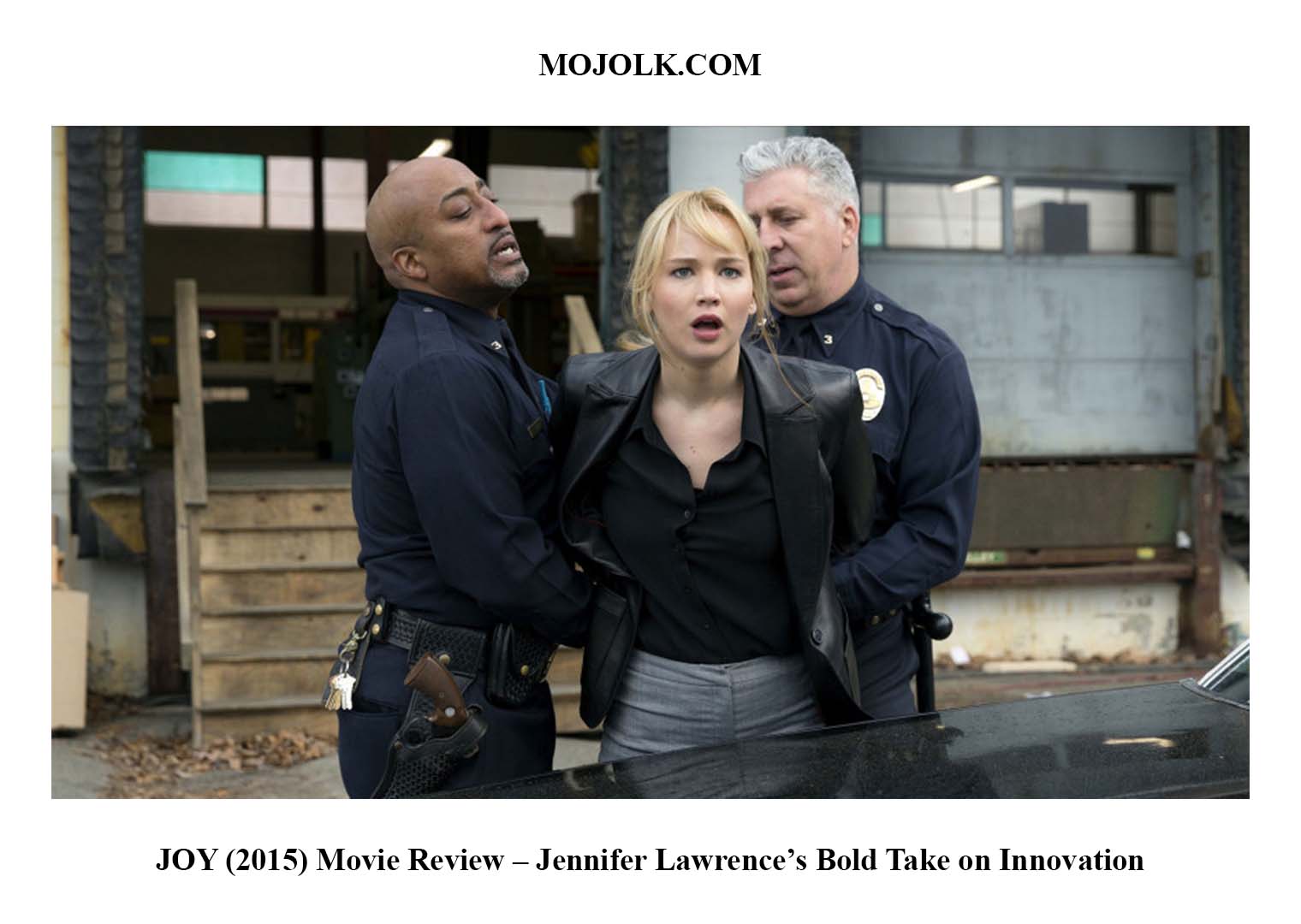JOY (2015) Movie Review – Jennifer Lawrence Shines in a Tale of Resilience and Reinvention
Introduction – Why JOY (2015) Is More Than Just a Biopic
Joy (2015), directed by David O. Russell, stands as a uniquely inspiring film that blends drama, humor, and determination into a compelling story of female entrepreneurship. Anchored by a powerhouse performance from Jennifer Lawrence, the film follows the unlikely rise of Joy Mangano, the inventor of the Miracle Mop, who overcomes personal and professional struggles to build a business empire. Though the film plays loosely with biographical accuracy, it captures the emotional truth of Joy’s journey and celebrates the grit behind her success.
Jennifer Lawrence’s Commanding Performance
Jennifer Lawrence leads the film with her usual blend of vulnerability and strength. As Joy, she portrays a woman burdened with family responsibilities and constant setbacks, yet determined to build something of her own. Lawrence captures the emotional exhaustion and quiet resilience of her character, making her relatable to anyone who has ever dared to dream bigger.
Her portrayal earned her a Golden Globe Award and an Academy Award nomination for Best Actress. From her quiet moments of despair to her fierce confrontations in the business world, Lawrence gives a grounded, captivating performance that elevates the film beyond its narrative constraints.
David O. Russell’s Direction and Storytelling Style
David O. Russell brings his signature energy to Joy, blending real-life inspiration with fictionalized storytelling. His use of non-linear narrative and internal monologue creates a fairytale-like structure that contrasts with the harsh realities Joy faces. The film oscillates between quirky family drama and rags-to-riches fable, keeping viewers emotionally invested throughout.
Russell previously collaborated with Lawrence on Silver Linings Playbook and American Hustle, and their creative chemistry once again proves effective. He crafts Joy’s journey with empathy and bold stylistic choices, emphasizing both the struggle and triumph of entrepreneurship.
Supporting Cast and Character Dynamics
The ensemble cast adds layers of complexity and tension to Joy’s world. Robert De Niro plays Joy’s unpredictable father, Rudy, bringing a mix of comic relief and emotional depth. Bradley Cooper appears as Neil Walker, a QVC executive who becomes a turning point in Joy’s business journey. Diane Ladd, Virginia Madsen, and Édgar Ramírez round out the cast, contributing to the chaotic yet affectionate family dynamic that constantly tests Joy’s resolve.
These performances not only support Lawrence’s lead but also reflect the various pressures that ambitious women often face—from skepticism and sabotage to unexpected alliances.
Themes of Empowerment and Perseverance
At its core, Joy is a story about self-belief and the pursuit of independence. The film explores how creativity, innovation, and sheer willpower can overcome seemingly insurmountable odds. Joy’s battles—with family, corporate greed, and self-doubt—mirror the challenges faced by many aspiring entrepreneurs, especially women in male-dominated industries.
Through Joy’s evolution, the film reinforces the message that resilience is key to transformation. It doesn’t shy away from depicting failure or betrayal but shows how these moments can serve as stepping stones to success. This emphasis on perseverance and personal growth makes Joy a motivational experience for anyone facing adversity.
Visuals, Tone, and Musical Score
The film’s aesthetic mirrors its thematic content. From drab domestic settings to polished QVC sets, the visual contrast highlights Joy’s journey from obscurity to visibility. Cinematographer Linus Sandgren captures the emotional nuances of each scene with precision, enhancing the storytelling without overshadowing it.
The musical score, composed by West Dylan Thordson and David Campbell, underscores the film’s shifts in tone—from despair to empowerment—with elegance and subtlety. The soundtrack includes eclectic tracks that blend seamlessly into the film’s narrative rhythm.
Final Thoughts – Why JOY (2015) Deserves More Recognition
Joy (2015) may not fit neatly into the traditional biopic mold, but that’s part of its strength. By focusing on emotional truth over factual accuracy, it paints a more universal picture of ambition and struggle. Jennifer Lawrence’s commanding performance, combined with Russell’s inventive direction, turns Joy’s story into an inspiring cinematic journey.
The film’s blend of drama, humor, and motivation makes it a compelling watch, especially for viewers seeking stories of empowerment and resilience. Whether you’re familiar with Joy Mangano’s real-life achievements or not, Joy offers a deeply human look at what it takes to chase a dream—and make it real.

